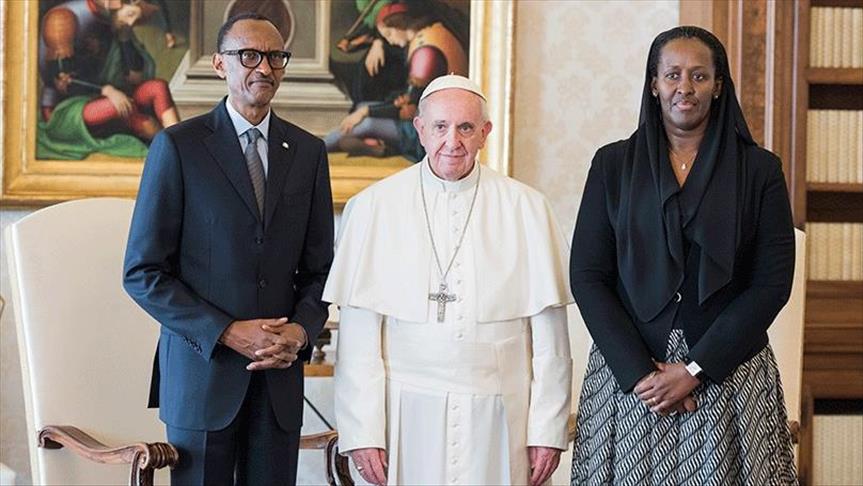
By Ivan Nganwa
KIGALI, Rwanda
Survivors of the 1994 Rwandan genocide have welcomed an apology made on Monday by Pope Francis who acknowledged the role of the Catholic Church and its clergy in the mass killings of the minority Tutsi ethnic group.
The president of Ibuka (an umbrella body of organizations representing genocide survivors), released a statement on Tuesday describing the Vatican’s announcement as timely, coming ahead of a commemoration of the killings next month.
“We expect his [Pope Francis’s] message to echo across the country during the commemoration period,” Jean Pierre Dusingizemungu said.
“This should also facilitate the hunt for those responsible for the genocide, especially the clergy like Munyeshyaka. I don’t expect him back at the pulpit after this pronouncement by the Pope.”
This was a reference to Father Wenceslas Munyeshyaka, a Rwandan priest working in France. The priest is wanted in Rwanda for his role in the genocide, but France has turned down Kigali’s requests to have him extradited.
Tensions
Tensions between the Vatican and the Rwandan government have existed for over two decades. However, progress was made when Pope Francis and President Paul Kagame met in Rome on Monday.
After their meeting, the Vatican released what appeared like an apology for its clergy’s role in the 1994 genocide against the Tutsi in Rwanda.
A Vatican statement said Pope Francis had finally “implored new God’s forgiveness for the sins and failings of the church and its members, among whom priests, and religious men and women who succumbed to hatred and violence, betraying their own evangelical mission”.
Rwanda was seen to have accepted the apology, after President Kagame tweeted that “being able to acknowledge/apologize for wrongs in circumstances like this is an act of courage and moral high standing typical [of the Pope]”.
Rwanda’s foreign affairs minister, Louise Mushikiwabo, also said the historic meeting was characterized by a “spirit of openness and mutual respect”.
The genocide in Rwanda -- which the UN acknowledged to have been planned by the then government -- was sparked by the assassination of former President Juvenal Habyarimana, which saw the majority Hutu ethnic group descend upon the minority Tutsi.
Many Tutsi who sought refuge in churches were betrayed by priests and nuns who alerted the killers.
Previously, President Kagame had accused the papacy of denying the role played by clergymen in the 1994 genocide against the Tutsi, which saw over a million people killed.
Late last year, Catholic bishops in Rwanda officially apologized for crimes committed by the clergy during the genocide.
However, their apology was turned down by government, which called for a statement from the highest leadership of the Catholic Church.
The Catholic faith is the largest religion in Rwanda with over 44 percent of the population subscribing to it.
During the 1994 genocide, priests and nuns are said to have collaborated with the militia and extremist government to murder Tutsi.
This was opposite of what other religions did to prevent the genocide; for example, the country’s senior Islamic cleric at the time issued a ruling calling on Muslims not to participate in any murders.
Many priests and nuns were convicted for their crimes by Rwandan courts and the United Nations International Criminal Tribunal for Rwanda, while others fled to exile, mainly to France and other African countries.
Anadolu Agency website contains only a portion of the news stories offered to subscribers in the AA News Broadcasting System (HAS), and in summarized form. Please contact us for subscription options.




